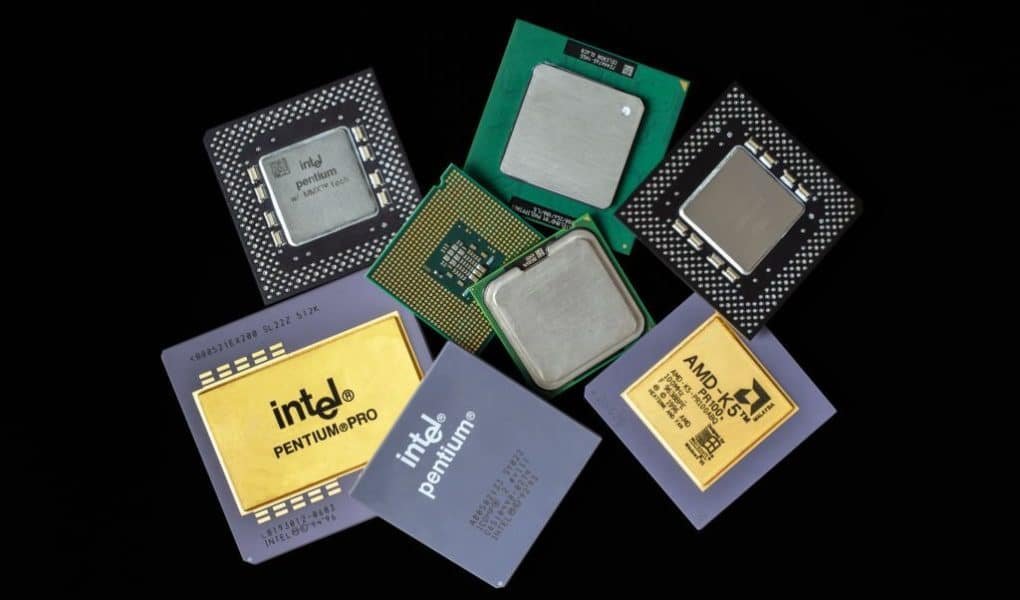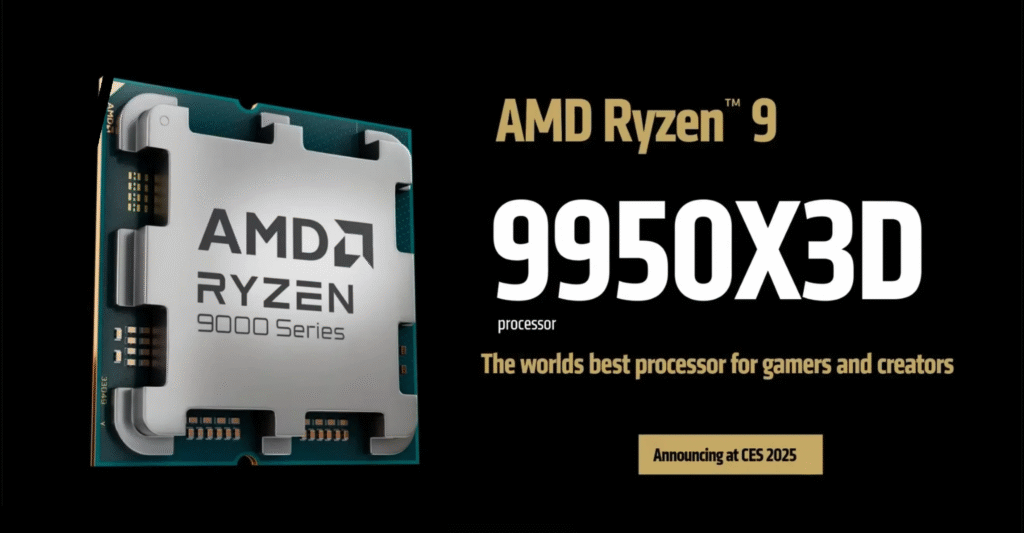
Introduction
The year is 2025, and the tech world is buzzing with a simple but pivotal question—CPU Generations in 2025 – Should You Upgrade or Wait? This isn’t just a decision for tech geeks or gamers anymore. Whether you’re editing videos, managing cloud deployments, developing AI models, or just want your computer to boot faster than your coffee brews, this question hits home. With each CPU generation leapfrogging the previous in speed, architecture, and efficiency, the temptation to upgrade is stronger than ever.
But wait—does every shiny new chip truly justify its cost? Do the latest CPU generations in 2025 deliver a meaningful boost over what you currently have? Or are you better off waiting for the next big leap, saving money, or investing elsewhere?
Let’s unpack the truth layer by layer—carefully, analytically, and persuasively—so you can confidently decide whether now is the time to leap forward or hold the line.
The Evolution of CPU Generations

From the humble days of single-core processors to today’s multi-core monsters packed with AI acceleration and 3D-stacked cache, the journey of CPU evolution has been nothing short of breathtaking. And now, in 2025, we stand at a fascinating crossroads.
Major Milestones and Innovations
- 2006-2011: Intel introduced Core i3/i5/i7 architecture, and AMD rolled out their Phenom line—multi-core processors became mainstream.
- 2017: AMD Ryzen hit the scene, shaking Intel’s monopoly and sparking an innovation war.
- 2020-2022: Apple’s M1 and M2 chips redefined what ARM-based CPUs could achieve in efficiency and power.
- 2023-2024: Intel Meteor Lake and AMD’s Ryzen 8000 series with 3D V-Cache significantly upped the ante.
- 2025: We now welcome the likes of Intel Arrow Lake, AMD Ryzen 9000, and Apple’s M4 Ultra—each built on refined nodes like Intel 20A or TSMC’s 3nm process.
These aren’t just marginal improvements. They’re architectural revolutions.
What to Expect from 2025 CPU Generations

The latest CPUs in 2025 are not just faster—they’re smarter, cooler, and more energy efficient. But let’s dive deeper to understand what’s new under the hood.
Performance Enhancements
2025 CPUs have shown a consistent 20–40% performance increase over their predecessors in real-world benchmarks. This includes better multithreaded throughput, improved single-core responsiveness, and AI-accelerated performance—ideal for modern workloads from gaming to deep learning.
Efficiency and Power Consumption
Modern chips are now prioritizing performance-per-watt like never before. Intel’s Arrow Lake and AMD’s Zen 5 architecture feature significant gains in battery efficiency and thermal management, making them ideal for both desktops and ultrathin laptops.
New Architectural Features
- Chiplet designs allow for modular scaling and faster time-to-market.
- Integrated NPUs (Neural Processing Units) support on-device AI computing.
- Support for DDR5 and PCIe Gen5 across the board enhances bandwidth and responsiveness.
Assessing Your Current CPU Hardware

Before jumping into the upgrade pool, let’s do a little self-check. Ask yourself: what’s powering your PC right now?
Identifying Your Computing Needs
Are you a casual browser, an avid gamer, a content creator, or a data scientist? Your CPU needs drastically differ.
| User Type | Minimum CPU (2025) | Ideal Upgrade Path |
|---|---|---|
| Office User | 6-core CPU (Ryzen 5000/i5 11th Gen) | Consider holding off |
| Gamer | 8-core CPU + high boost clock | 2025 CPUs may be worth it |
| Content Creator | 12+ core CPU + fast cache | 2025 CPUs highly recommended |
| AI/Data Science Pro | NPU/GPU integrated CPU | Definitely consider upgrading |
Current CPU Performance and Capabilities
If you’re still running a 4-core processor from 2018, you’re already leaving a lot on the table. But if you’re on a Ryzen 7 5800X or Intel i7-12700K, your system still has plenty of life—unless your workload demands bleeding-edge responsiveness.
Cost Considerations for Upgrading to 2025 CPU Generations
Let’s face it—upgrading isn’t cheap. But sometimes, not upgrading ends up being even costlier over time.
| Component | Average 2025 Price (USD) |
|---|---|
| High-End CPU | $450 – $600 |
| Mid-Tier CPU | $250 – $350 |
| Entry-Level CPU | $120 – $200 |
| Compatible Motherboard | $150 – $300 |
| DDR5 RAM (16GBx2) | $120 – $180 |
If your upgrade includes a full platform swap (new CPU + motherboard + RAM), expect to spend between $600 and $1000. However, the performance-per-dollar might still justify it—especially if it extends your system’s lifespan for the next 5 years.
Gaming and the Latest CPU Generations

Modern AAA games are no longer just GPU-hungry—they’re CPU-sensitive too. Frame pacing, draw calls, and background tasks depend on the CPU.
Content Creation Demands in 2025
If you’re editing 4K video, rendering 3D animation, or working with gigabyte-scale RAW images, the cache size, thread count, and instruction latency of your CPU become crucial.
Productivity and Workstation Requirements
For power users juggling Excel, Chrome, Teams, and VS Code at once—2025 CPUs offer a noticeable quality-of-life boost.
AI and Machine Learning Applications

Machine learning is no longer just for labs. With integrated NPUs in most 2025 CPUs, local inference tasks (like transcription, object detection, or facial recognition) can be executed without touching the cloud.
Whether you’re a researcher or hobbyist, these enhancements unlock new possibilities.
Compatibility and Future-Proofing Your System
2025 CPUs have adopted new standards:
- Socket LGA 1851 (Intel) and AM5 (AMD) will likely last until 2027
- DDR5 and PCIe Gen5 are now mainstream
- Thunderbolt 5, USB 4.2, and new AI instruction sets are native
This means upgrading today might secure compatibility with peripherals and software of tomorrow.
Potential Benefits of Holding Off Upgrading
Now let’s talk patience. Waiting has its own perks:
- Prices of current 2025 CPUs may drop in late 2025
- 2026 launches may bring larger architecture leaps
- Early adopters often deal with bugs and BIOS immaturity
If your workload isn’t demanding and your current rig handles it well, there’s no urgent need to upgrade.
CPU Generations in 2025 – Should You Upgrade or Wait?
Here’s the heart of it. If you’re still unsure, consider these points:
- Upgrade if you’re facing performance bottlenecks, building a new PC, or want AI acceleration.
- Wait if your CPU is less than 2 years old, your needs are modest, or you want better value next year.
The answer is rarely black and white—it’s all about your context, your tasks, and your wallet.
Market Trends and CPU Longevity
CPU cycles are slowing down. A good CPU in 2025 may last 6–8 years for average users. This makes a compelling case for investing now—if you’re due.
Environmental Impact of Upgrading
Let’s not ignore the elephant in the room—e-waste. Each upgrade comes with a carbon cost. If you can squeeze another year out of your CPU without major compromise, it’s a green win.
The Role of Integrated Graphics in 2025 CPU Generations
iGPUs are getting shockingly capable. Intel’s Xe-LPG and AMD’s RDNA3 are now competent at 1080p gaming and light creative tasks, reducing the need for discrete GPUs in budget builds.
Frequently Asked Questions
Are 2025 CPUs significantly faster than 2023 models?
Yes, especially in AI, content creation, and gaming. Expect 20–40% better performance in real-world use.
Will I need to upgrade my motherboard for a 2025 CPU?
Likely yes. Intel’s Arrow Lake uses a new socket (LGA 1851), and AMD’s Ryzen 9000 series still uses AM5 but may require a BIOS update.
Is DDR5 necessary for new CPUs?
Absolutely. DDR5 is now the standard, and older DDR4 is no longer supported in most 2025 motherboards.
Can integrated graphics replace dedicated GPUs?
For casual gaming and general use, yes. But for 4K gaming or professional 3D work, a discrete GPU is still better.
What’s the most future-proof CPU in 2025?
Intel’s i9-14900K successor and AMD’s Ryzen 9 9950X are currently the most powerful and support the latest features.
Should students or general users upgrade now?
Only if their system is 5+ years old or struggling. Otherwise, waiting may offer better deals.
Final Thoughts: Choose Based on Purpose, Not Pressure
Whether you’re a performance chaser or a smart saver, the decision comes down to your unique needs. The CPU Generations in 2025 – Should You Upgrade or Wait? debate won’t stop here—but now you’re armed with clarity, context, and confidence.
Don’t upgrade out of fear of missing out. Upgrade because your workflow, your performance, and your passion demand it.
👉 Compare AMD Ryzen processors






